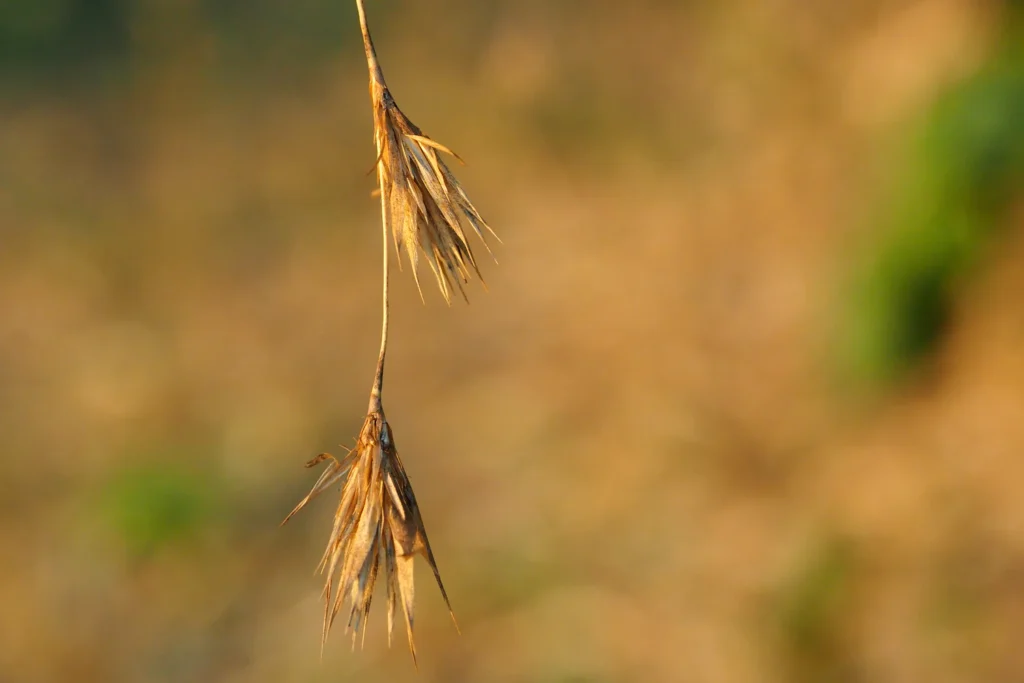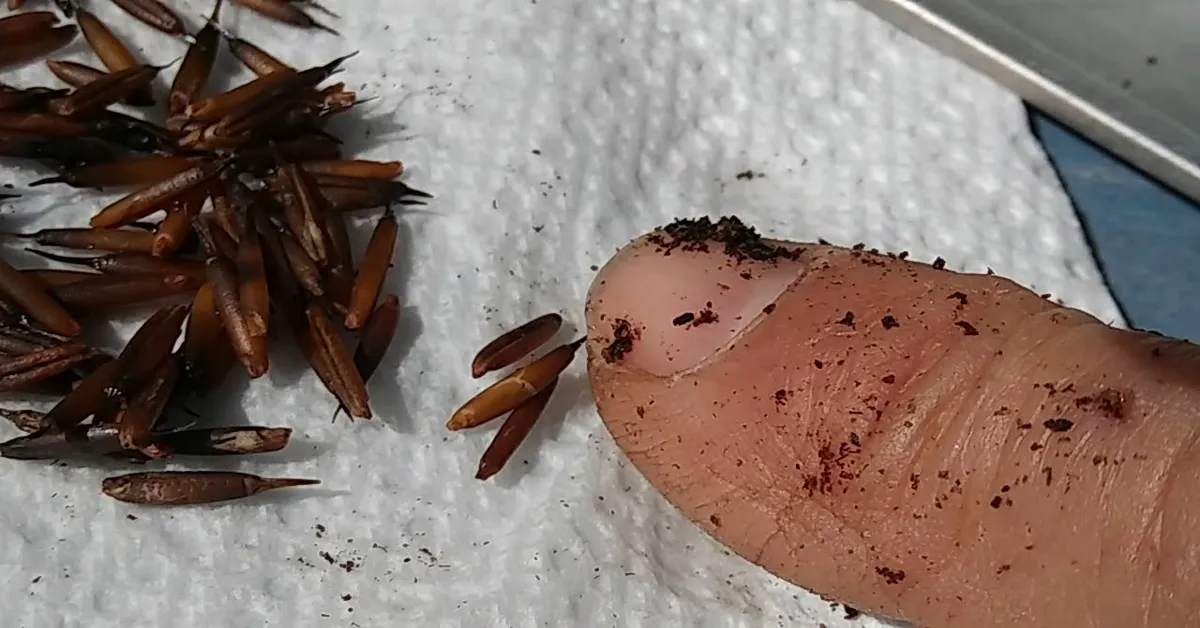As the world becomes increasingly focused on sustainability and eco-friendly practices, more and more people are turning to gardening as a way to connect with nature and reduce their carbon footprint. One plant that has gained popularity in this movement is bamboo, known for its fast growth and versatility. But have you ever wondered how bamboo grows from a tiny seed into a towering plant?
Today, we will take a closer look at the process of germinating bamboo seeds and how you can successfully grow your own bamboo at home. So put on your gardening gloves and let’s dive into the world of bamboo cultivation.
Statistical Information: germinating bamboo seeds
| Statistic | Percentage | Fact |
|---|---|---|
| The average germination rate for bamboo seeds is | 70% | This means that out of 100 bamboo seeds planted, 70 will successfully germinate. |
| Bamboo seeds take | 1-2 months | to germinate, depending on the species and growing conditions. |
| Some bamboo species, like | Phyllostachys edulis | have a germination rate of up to 95%. |
| The optimal temperature for bamboo seed germination is | 75-85 degrees Fahrenheit | If the temperature is too low, germination may be delayed or unsuccessful. |
| Bamboo seeds should be planted at a depth of | 1/4 inch | Planting too deep may prevent the seeds from receiving enough light to germinate. |
| It is important to keep bamboo seeds moist during germination, but not | overwatered | Excessive water can cause the seeds to rot before they have a chance to germinate. |
Why Bamboo Seeds?

Germinating bamboo seeds can be a daunting task, but with the right techniques and care, you can successfully grow your own bamboo plants. Before we dive into the details, let’s first understand what germination actually means. Germination is the process of a seed sprouting and growing into a plant.
Now, let’s explore the steps you need to take to germinate bamboo seeds.
Step 1: Choosing the right variety of bamboo – The first step to successful germination is to choose the right variety of bamboo seeds. There are two types of bamboo – running and clumping. Running bamboo can quickly spread and take over your garden, while clumping bamboo stays in a tight bunch. Make sure you choose a variety that suits your needs and the space you have available.
Step 2: Preparing the seeds – Before planting, you need to prepare the bamboo seeds. Soak them in water for 24 hours to help break through the hard outer shell. This will also increase the chances of germination. After soaking, remove any seeds that are floating as they may not be viable.
Step 3: Planting the seeds – Bamboo seeds need to be planted in a well-draining soil mix. The soil should be kept moist but not waterlogged. Plant the seeds about 1 inch deep and cover them with a thin layer of soil. Keep the soil warm and moist to encourage growth.
Step 4: Providing the right conditions – Bamboo seeds need warmth and humidity to germinate. Keep the soil temperature between 70-80°F and cover the seeds with plastic to increase moisture.

Selecting the Right Seeds
Germinating Bamboo Seeds: The Key to Growing Beautiful Bamboo Plants If you’re a plant enthusiast or simply looking to add some greenery to your home, you may have considered growing bamboo. This fast-growing and versatile plant is a popular choice for both indoor and outdoor gardens. However, before you can enjoy the beauty of bamboo, you need to successfully germinate the seeds.
In this section, we’ll guide you through the process of germinating bamboo seeds so you can grow your own beautiful bamboo plants.
Why Germination is Important for Bamboo Seeds – Germination is the process by which a plant’s seeds sprout and begin to grow into new plants. For bamboo seeds, germination is crucial because it determines the success of your bamboo plants.
Without proper germination, the seeds will not sprout and your bamboo plants will never grow. That’s why it’s essential to understand the steps involved in germinating bamboo seeds
The Steps to Germinating Bamboo Seeds – To successfully germinate bamboo seeds, follow these simple steps:
- Soak the seeds in water for 24 hours. This will help soften the hard outer shell and make it easier for the seeds to sprout.
- Prepare a well-draining potting mix. Bamboo seeds are sensitive to waterlogged soil, so make sure the mix is well-draining and has good aeration.
- Plant the seeds in the potting mix. Make sure to plant them at a depth of 1-2 inches and cover them with a thin layer of soil.
Preparing the Seeds
Germinating bamboo seeds can seem like a daunting task, but with the right approach, it can be a rewarding experience. Bamboo is a versatile plant that can add beauty and functionality to any garden or home. However, traditional methods of germination can be time-consuming and ineffective.
In this blog, we will explore a clever and witty approach to germinating bamboo seeds that will have you enjoying your beautiful bamboo in no time.
The Science Behind Germinating Bamboo Seeds – Before we dive into the process of germinating bamboo seeds, let’s first understand the science behind it. Bamboo is a type of grass and its seeds are called “caryopsis”.
These seeds have a hard outer layer that needs to be broken down in order for the seed to germinate. This process can be mimicked by soaking the seeds in water for 24 hours, which will soften the outer layer and allow for the seed to sprout.
The Clever and Witty Approach to Germinating Bamboo Seeds – Now that we understand the science behind it, let’s get to the fun part – the clever and witty approach to germinating bamboo seeds. Instead of simply soaking the seeds in water, try using a bamboo steamer! Yes, you read that right. Bamboo steamer baskets are traditionally used for cooking, but they can also be used for germinating seeds. The steam from the basket will not only soften the outer layer of the seed but also provide a warm and humid environment for the seed to sprout.
The Step-by-Step Guide – Place a layer of potting soil in the bottom of the bamboo steamer. Place the bamboo seeds on top of the soil, making sure they are not touching. Cover the seeds with another layer of potting soil.
You May Also Like: Uncover the Beauty and Benefits of Growing a Bamboo Tree
Caring for Germinating Seeds
Growing bamboo from seeds can be a rewarding and exciting experience, but it also requires patience and careful attention to detail. In this guide, we will walk you through the process of germinating bamboo seeds, from choosing the right seeds to caring for your seedlings. By following these steps, you can ensure the success of your bamboo seedlings and watch them grow into beautiful and strong plants.
Choosing the Right Seeds – Before you start the germination process, it’s important to choose the right seeds. Look for seeds from a reputable source, as they will be more likely to produce healthy and viable seedlings. You can also choose between different types of bamboo seeds, including running and clumping varieties. Running bamboo tends to spread quickly, while clumping bamboo stays in a more contained area.
Preparing the Seeds for Germination – Once you have your seeds, it’s time to prepare them for germination. Start by soaking the seeds in warm water for 24 hours. This will help to soften the outer layer of the seed and make it easier for the seedling to emerge. After soaking, place the seeds in a plastic bag with damp paper towels and leave them in a warm, dark place for another 24 hours.
Germinating the Seeds – After the initial soaking and preparation, it’s time to start the germination process. Fill a container with a well-draining potting mix, and make a small hole in the center for each seed. Place the seeds in the holes, cover them with a thin layer of potting mix, and lightly water them. Then, place the container in a warm and well-lit area, making sure to keep the soil moist but not waterlogged.
Caring for Your Seedlings – As your seedlings start to emerge, it’s important to continue to care for them properly. They will need plenty of water, but make sure not to overwater them. You can also use a diluted liquid fertilizer to provide nutrients to the seedlings.
Transplanting the Seedlings
Bamboo is a versatile plant known for its strength, durability, and rapid growth. Whether you want to add some greenery to your garden or grow your own bamboo forest, germinating bamboo seeds is a great way to start. But how do you go about it? Let’s dive into the world of bamboo germination and discover the secrets to successfully growing this amazing plant.
The Process of Germinating Bamboo Seeds – Germinating bamboo seeds can be a challenging but rewarding process. It starts with choosing the right seeds from a reputable source. Once you have your seeds, you need to prepare them for planting by soaking them in water for 24 hours.
This helps to soften the outer shell of the seed and increase the chances of germination. Next, you need to choose the right soil and container for planting. Bamboo thrives in well-draining, nutrient-rich soil.
You can use a pot or a seed tray to plant your seeds, making sure to leave enough space for the roots to grow. Cover the seeds with a thin layer of soil and keep the soil consistently moist.
Patience is Key – Bamboo seeds can take anywhere from 3 months to a year to germinate, so it’s important to be patient. During this time, make sure to keep the soil moist and protect the seeds from direct sunlight. Once the seedlings start to sprout, you can move them to a spot with filtered sunlight.
Caring for Your Bamboo Seedlings – As your bamboo seedlings grow, it’s important to provide them with the right care. Make sure to water them regularly, but avoid overwatering as this can lead to root rot. You can also fertilize your seedlings with a balanced fertilizer to ensure they have all the nutrients they need to grow strong and healthy. Germinating bamboo seeds is a fascinating process that requires patience, care, and the right conditions.
Important Notice for readers
Attention all green-thumbed readers! Do you want to add a unique and exotic plant to your garden? Look no further than bamboo! In our latest article, we share tips on how to successfully germinate bamboo seeds and grow your own bamboo plant. From choosing the right seeds to providing the ideal growing conditions, we’ve got you covered. Whether you’re a seasoned gardener or a beginner, this article is a must-read.
So grab your gardening gloves and get ready to add a touch of Asian-inspired beauty to your outdoor space. Keep reading to learn the secrets of growing bamboo from seeds.
Frequently Asked Questions (FAQs)
How long does it take for bamboo seeds to germinate?
The germination time for bamboo seeds can vary depending on the species, but on average it takes between 1-3 months for the seeds to sprout.
What is the best way to germinate bamboo seeds?
The best way to germinate bamboo seeds is to soak them in water for 24 hours before planting them in a well-draining soil mix. Keep the soil moist and warm (around 70-80°F) to promote germination.
Can I germinate bamboo seeds indoors?
Yes, bamboo seeds can be germinated indoors as long as they are provided with the right conditions such as warmth, moisture, and light. A sunny windowsill or grow light can be used for light requirements.
How deep should I plant bamboo seeds?
It is recommended to plant bamboo seeds no deeper than 1 inch in the soil. This will allow for easier sprouting and emergence of the seedlings.
Do I need to scarify bamboo seeds before planting?
No, bamboo seeds do not need to be scarified before planting. Soaking them in water for 24 hours is enough to soften the seed coat and promote germination.
How often should I water bamboo seeds while they are germinating?
It is important to keep the soil moist but not waterlogged while the bamboo seeds are germinating. Water them lightly every day or every other day, depending on the moisture level of the soil.
Can I use fertilizer to help with germination of bamboo seeds?
It is not necessary to use fertilizer during the germination process as it can potentially harm the delicate seedlings. Once the seedlings have established, a slow-release organic fertilizer can be used.
What should I do if my bamboo seeds do not germinate?
If your bamboo seeds do not germinate after a few months, it is possible that they were not viable or did not receive the proper conditions for germination. It is recommended to try again with fresh seeds and make sure to provide the right environment for germination.
Conclusion
It would be more impactful to end the essay with a thought-provoking question or statement related to the benefits of growing bamboo or the potential impact of bamboo production on the environment. For example, “As we continue to explore sustainable solutions for our planet, the simple act of germinating bamboo seeds can have a profound impact. Imagine a world where bamboo is a leading source of renewable materials and a key player in combating climate change. The power is in our hands, or rather, in the seeds we sow.” This leaves the reader with a sense of empowerment and a call to action, emphasizing the importance of bamboo cultivation for a greener future.
